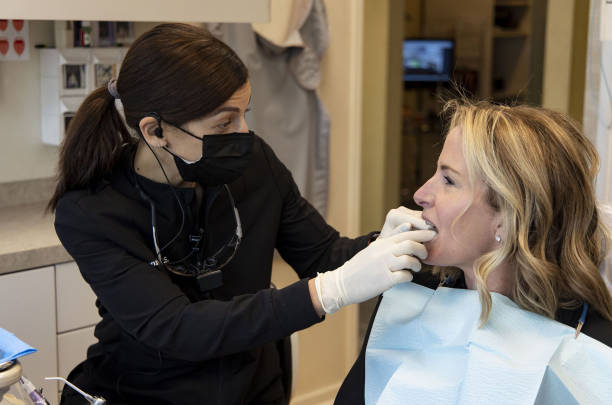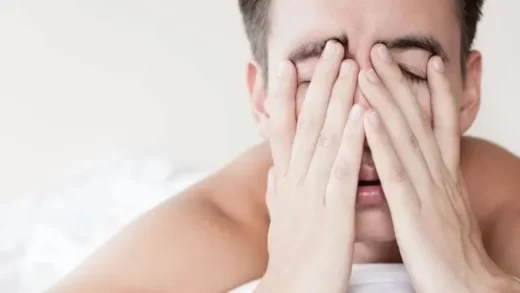How To Stop Grinding Your Teeth? With 7 Ways

The effects of teeth grinding, also known as bruxism, on your dental health can be severe. Even though it’s normal to clench your teeth every now and then, persistent grinding can harm your teeth and cause symptoms that last all day.
Because most people grind their teeth at night while they sleep, many people are not even aware that they do it. A sore jaw and headaches are bruxism symptoms. People may claim to have heard you clench your teeth at night as well. Learn how to stop teeth grinding both during the day and at night by reading on.
Table of Contents
Get a mouth guard for the night.
Your teeth’s enamel can become thinner from constant grinding, which increases the risk of cavities. Fortunately, using a mouth guard while you sleep will keep your teeth safe. You can receive a custom mouth guard from our dentist that will protect your teeth all night long. A specially made guard will be more comfortable than a store-bought one that may not fit as snugly. Store-bought guards are one size fits all. One of the best ways to stop sleep bruxism is to wear a mouth guard every night.
Consider Splint Therapy
The first line of defense against teeth grinding is splint therapy. Wearing an individualized dental night guard, bite guard, or occlusal splint is required. The guard acts as a physical barrier to safeguard teeth and reduce symptoms like headache and jaw pain. You can either get one made specifically for you by your dentist or buy a generic one from a pharmacy. In order to make a mouthguard that perfectly fits your jaw, they will take an impression of both your upper and lower teeth. Models purchased at a store are less well-fitted or durable.
Start working out.
Add a few sweat sessions to your weekly schedule if you don’t already exercise. Stress is a common cause of bruxism, and tension can manifest as tooth grinding. You can relieve your stress by exercising.
Unwind before going to bed
Before you go to bed, you need to release all the tension in your jaw. Try some calming exercises, like any of the following:
- To relax your jaw muscle before bed, take a warm bath.
- Apply a warm, wet towel or a heating pad to your jaw.
- To warm up your mouth, sip on some herbal tea without caffeine.
Consume Foods High in Magnesium
Magnesium promotes calmness and regulates mood. Incorporate foods high in magnesium into your diet, such as dry-roasted almonds, boiled spinach, bananas, fish, black-eyed peas, peanut butter, and flaxseed. These will aid in relaxing blood vessels and muscle tissue, preventing grinding brought on by tense or spasmodic jaw muscles. Magnesium supplements are also an option, but it’s best to first speak with a physician or nutritionist.
Consume turmeric milk
The anti-inflammatory properties of turmeric help to soothe your sore jaw muscles. Additionally, milk contains the amino acid tryptophan, which aids in sleep promotion and nervous system relaxation. If you don’t like the flavor of turmeric milk, sweeten it with honey and drink a cup of it every night before bed to get the desired effects.
Have some herbal tea
You’re better off consuming caffeine-free substitutes in place of caffeinated drinks like coffee. Choosing herbal or chamomile tea is a great way to relax naturally and treat the symptoms of teeth grinding in sleep, which are exacerbated by nervous tension. Herbal tea helps you stay calm by calming your body and mind. If you want to lessen the likelihood that you’ll grind or clench your teeth while you sleep, try drinking a cup of warm green tea before bed.

You must get rid of the underlying cause in order to treat and prevent teeth grinding. Exercises for managing stress, a healthy diet, and splint therapy may be beneficial if that’s anxiety, stress, or depression. You should see a doctor if it’s related to an underlying medical condition like sleep apnea, Parkinson’s disease, epilepsy, or gastroesophageal reflux disorder (GERD). Remember that symptoms can be alleviated by using relaxation techniques and the home remedies mentioned above. If the shape or structure of your jaw is the reason behind your teeth grinding, you should schedule a visit with your dentist.



















![Dr. Oz Good Life Mattress Reviews In 2022 [Updated]](https://www.myspacebeds.com/wp-content/uploads/2022/09/Dr.-Oz-Good-Life-Mattress-Reviews-In-2022-Updated-2.jpg)
![Silk & Snow Hybrid Mattress Review Should You Buy It Or Not [2022]](https://www.myspacebeds.com/wp-content/uploads/2022/11/Silk-Snow-Hybrid-Mattress-Review-Should-You-Buy-It-Or-Not-2022-520x293.jpg)
